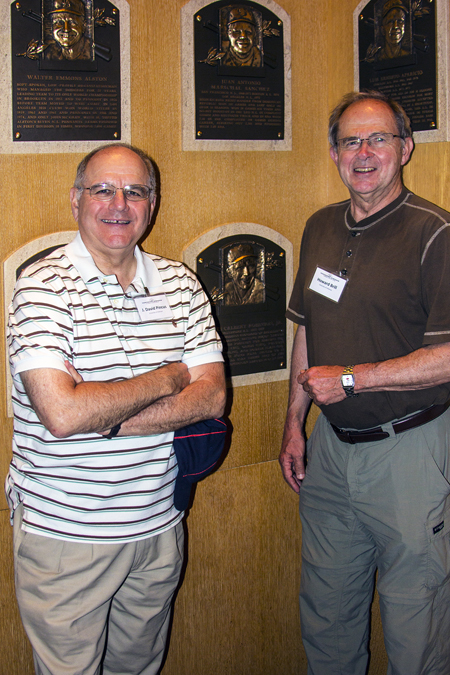
For the past 25 summers, fans and scholars have celebrated our national pastime at the Cooperstown Symposium on Baseball and American Culture at the National Baseball Hall of Fame and Museum in Cooperstown, N.Y. Attendees at this year's symposium were treated to University of Arkansas law professor Howard Brill's lecture "Take Me Out to the Hearings: Major League Baseball Players Before Congress," presented in conjunction with his son Christian Brill, who is of counsel to the Mallory Law Office in Columbus, Ohio.
Their presentation examined baseball players testifying before Congress in the capacity of both expert and celebrity witnesses. Some players, such as Jim Bunning, Eddie Murray and David Cone, testified with insight and with feeling as to the impact of antitrust restrictions and collective bargaining on players; others, notably Casey Stengel and Mickey Mantle, added little besides humor to the hearings. Celebrity witnesses may have lacked knowledge or expertise, but used their prominence to urge Congressional action in areas ranging from health care funding to criminal sentencing guidelines.
"Baseball plays a unique role in American life and culture," said professor Brill. "This conference annually highlights baseball as it appears in movies and music, advertising and art, politics and law, and other aspects of society. Those attending are typically passionate about baseball."
Also presenting at the symposium was David Pincus, former director of the Master of Business Administration program at the Sam M. Walton College of Business. Pincus presented "The Mystery of Curt Flood: Baseball's Persistent Enigma" with professor Steve Wood of the University of Rhode Island. The talk examined why Flood, who played a pivotal role in abolishing the "reserve clause" that contractually bound professional baseball players to one team for their careers, remains a controversial and under-recognized figure in the game's history. Pincus and Wood are the authors of the 2004 book Reel Baseball: Essays and Interviews on the National Pastime, Hollywood, and American Culture.
Howard Brill, the Vincent Foster University Professor of Legal Ethics and Professional Responsibility, has long taught one of the most popular courses at the School of Law, "Baseball and the Law," and is the faculty adviser to the law school's Sports and Entertainment Law Society student organization. He previously spoke in Cooperstown at the 1994 symposium, when his topic was "The Name of the Departed Team: Who can use it?" The focus was on the Brooklyn Dodger Sports Bar, which opened in 1992 and whose name was soon challenged in trademark litigation by the team that had infamously deserted the borough in 1957.
Professor Brill's talk continues a tradition of School of Law faculty participating in the Cooperstown Symposium. Dustin Buehler, associate professor of law, presented "Casey at the Bat—and in the Field? An Economic Analysis of Baseball's Designated Hitter Rule," with University of Washington law professor Steve P. Calandrillo at the 2010 symposium.
This year's symposium featured Frank Deford, longtime Sports Illustrated writer, NPR commentator and author of Everybody's All-American, as its keynote speaker.
Contacts
Andy Albertson, director of communications
School of Law
575-6111, aalbert@uark.edu